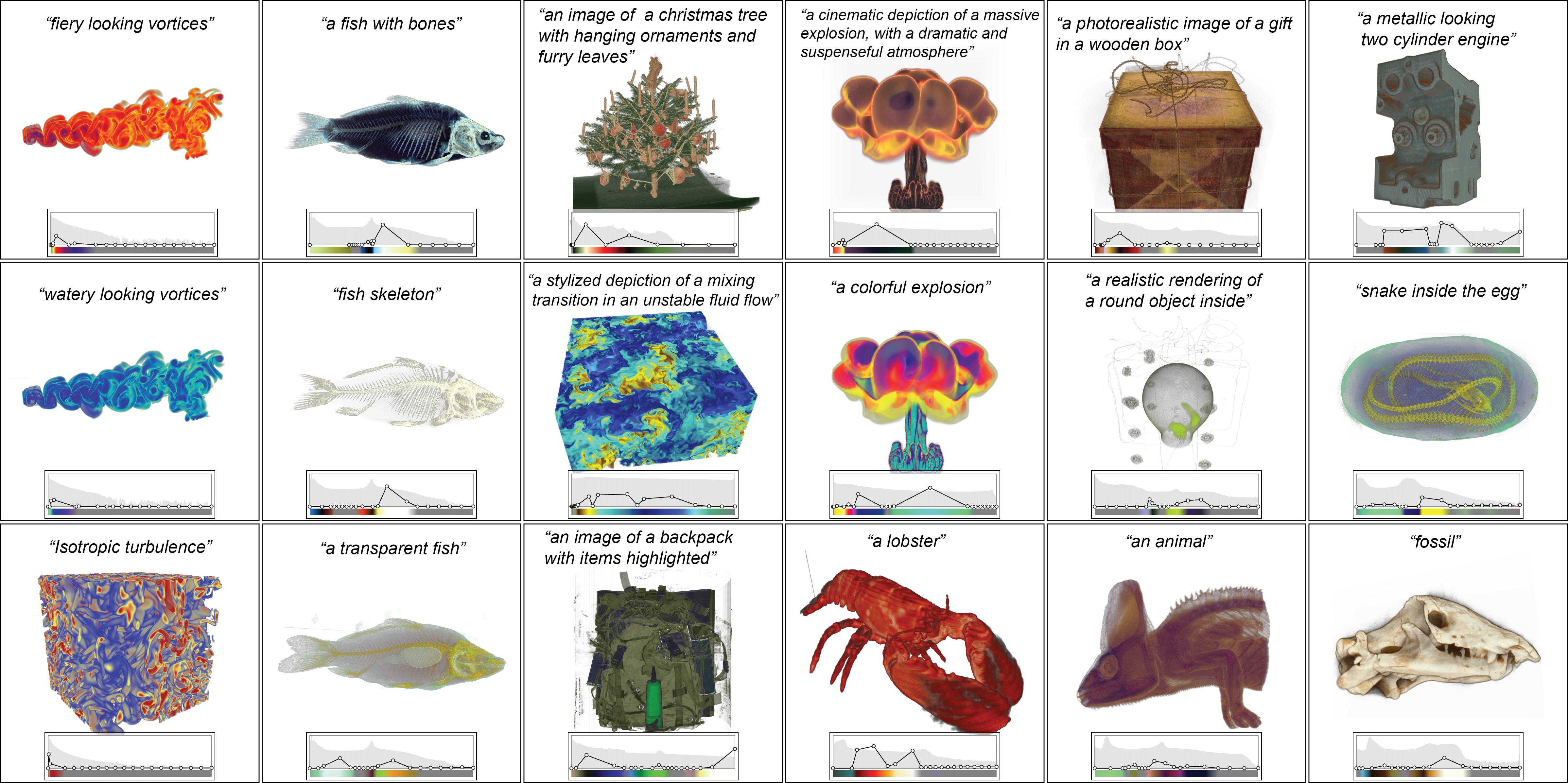Text-based transfer function design for semantic volume rendering
Sangwon Jeong - Vanderbilt University, Nashville, United States
Jixian Li - University of Utah, Salt Lake City, United States
Shusen Liu - Lawrence Livermore National Laboratory , Livermore, United States
Chris R. Johnson - University of Utah, Salt Lake City, United States
Matthew Berger - Vanderbilt University, Nashville, United States
Screen-reader Accessible PDF
Download preprint PDF
Room: Bayshore VI
2024-10-16T16:45:00ZGMT-0600Change your timezone on the schedule page
2024-10-16T16:45:00Z

Fast forward
Full Video
Keywords
Transfer function design, vision-language model
Abstract
Transfer function design is crucial in volume rendering, as it directly influences the visual representation and interpretation of volumetric data. However, creating effective transfer functions that align with users' visual objectives is often challenging due to the complex parameter space and the semantic gap between transfer function values and features of interest within the volume. In this work, we propose a novel approach that leverages recent advancements in language-vision models to bridge this semantic gap. By employing a fully differentiable rendering pipeline and an image-based loss function guided by language descriptions, our method generates transfer functions that yield volume-rendered images closely matching the user's intent. We demonstrate the effectiveness of our approach in creating meaningful transfer functions from simple descriptions, empowering users to intuitively express their desired visual outcomes with minimal effort. This advancement streamlines the transfer function design process and makes volume rendering more accessible to a wider range of users.